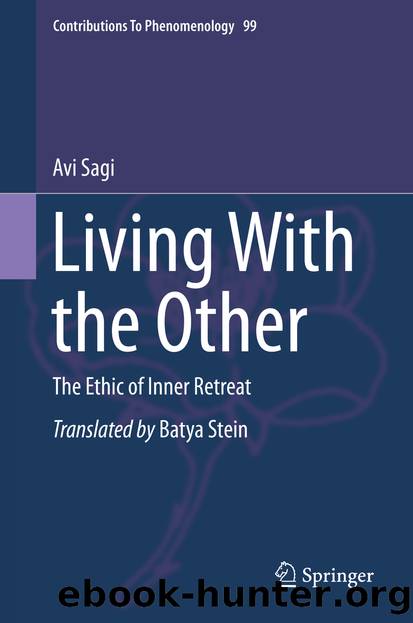Living With the Other by Avi Sagi

Author:Avi Sagi
Language: eng
Format: epub
ISBN: 9783319991788
Publisher: Springer International Publishing
What kind of father will a person for whom these are his fundamental experiences become? Will he transfer to his own children his complex attitude toward his parents? Will he burden them with his own guilt and frustration? Will he enable his children to grow and become autonomous individuals, free to be released from their fatherâs guilt?
Indeed, the biblical narrator assumes an implied connection between the removal of Abrahamâs parental home and the akedah story: âgo forth [lekh lekha] from your countryâ and âget thee [lekh lekha] to the land of Moriahâ (Genesis 22:2).â8 In both verses, the construct is one of detachment from the past and of turning to a different reality. These shared motifs tie together both moves and turn them into one story, a story of self-alienation, of renouncing the past and inventing Abrahamâs individuality, which culminates in the akedah. Latent in the akedah, however, is also the next stage in this process: the transformation of Abraham from an alienated son into an alienated father. In other words, the akedah is the culmination of Abrahamâs coming of age story, which shapes a new attitude toward himself, his past, and the basic elements of his existence, an attitude that will later be conveyed in his own attitude to his son, to Isaac. In literary terms, Abraham is indeed the hero of the story and Isaac is a minor character. Abraham is the one who is tested while Isaac is only the object of the test.
The akedah story compels the father to grapple with the legacy question, with his being a father who must develop a relationship with his son. This attitude cannot be based solely on what the son is âforâ the fatherâan object to fulfill his heartâs desiresâbut also, and mainly, on the son being âfor himself,â a being unconditioned by the father. The akedah story starkly poses the question of whether a father who had not been a son to his own father can allow his son to be what he is himself, or whether one who has been shaped by constant alienation will also be alienated from his own son.
The story describes quite precisely how Abraham becomes a father. In the first stage, he must bring his individuality and his uniqueness to a peak, leaving no room for the other, even for the son. He must sacrifice his son in order to realize his absolute freedom and protect his independence from any external interference. Abrahamâs completion as an individual is epitomized by the absolute objectification of Isaac the son. The akedah marks the culmination of this process in Abrahamâs move of self-alienation, which began with his detachment from his fatherâs house. He has now completed his individuation, his being a free person without any attachments. His being is a constant transcendence, and the sacrifice of Isaac is the absolute testimony to it.9 This stage is not merely a game; Abraham must take this move to its end. In Buberâs terms:The âson,â the âonly one,â â¦
Download
This site does not store any files on its server. We only index and link to content provided by other sites. Please contact the content providers to delete copyright contents if any and email us, we'll remove relevant links or contents immediately.
Shadow Children #03 - Among the Betrayed by Margaret Peterson Haddix(11929)
Among the Betrayed by Margaret Peterson Haddix(11612)
Six of Crows by Leigh Bardugo(10204)
Fangirl by Rainbow Rowell(9251)
Harry Potter and the Cursed Child - Parts One and Two Playscript by J.K. Rowling & John Tiffany & Jack Thorne(8163)
Shadow and Bone by Leigh Bardugo(6783)
Ranger's Apprentice 1 - The Ruins of Gorlan by John Flanagan(5936)
The Silver Mask by Holly Black & Cassandra Clare(5513)
The Ballad of Songbirds and Snakes (A Hunger Games Novel) (The Hunger Games) by Suzanne Collins(5021)
Siege and Storm by Leigh Bardugo(4969)
Percy Jackson 1 - The Lightning Thief by Riordan Rick(4959)
His Dark Materials 1 - The Golden Compass by Philip Pullman(4588)
Harry Potter and the Cursed Child: The Journey by Harry Potter Theatrical Productions(4507)
Papillon (English) by Henri Charrière(4274)
The miraculous journey of Edward Tulane by Kate DiCamillo(4125)
Predator's Gold by Philip Reeve(3807)
Erebos by Ursula Poznanski(3764)
Harry Potter and the Prisoner of Azkaban by J K Rowling(3590)
Good by S. Walden(3560)
